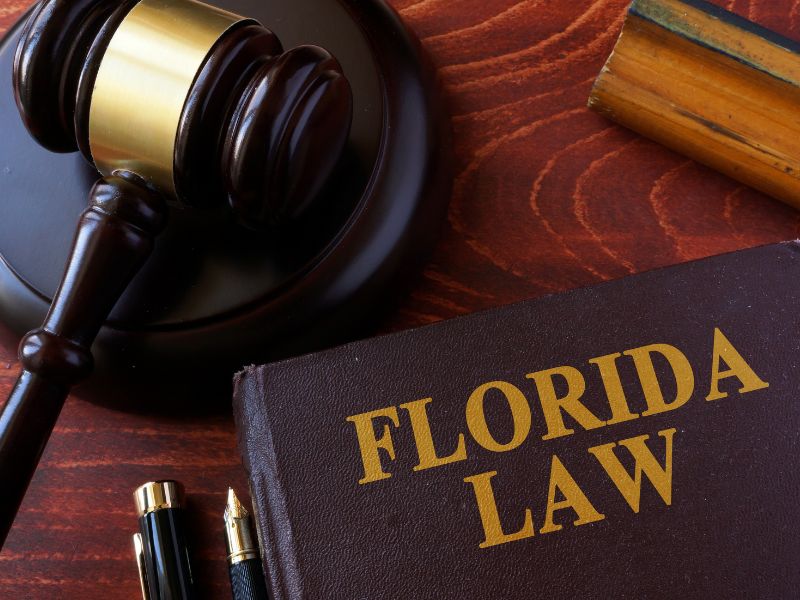
Sexual harassment in the workplace can take many forms. But federal and state laws make it illegal to subject a job applicant or employee in Florida to unwelcome and inappropriate sexual remarks, sexual advances, requests for sexual favors, or verbal or physical assaults of a sexual nature. Florida law defines sexual harassment as a form of discrimination and prohibits employment discrimination based on race, color, religion, sex, national origin, age, handicap, or marital status.
Harassment becomes illegal when 1) bad behavior is tolerated to a point that it becomes a condition to keep a job, or 2) the behavior is bad enough or happens so often that it makes the workplace unfriendly, or abusive to a regular person.
Employers must communicate to employees that sexual harassment will not be tolerated in the workplace. They must establish policies, provide training, and/or take other steps necessary to prevent sexual harassment.
What is Harassment?
Legally, harassment is described as any unsolicited verbal, visual, or physical behavior that significantly interferes with an employee’s work conditions or establishes a hostile work atmosphere.
It is important to understand sexual harassment laws in Florida because employers can be held liable for sexual harassment if they know (or should know) that harassment is occurring in the workplace or between employees but take no reasonable steps to stop or prevent the abuse.
The Tallahassee sexual harassment lawyers of Cruz Law Firm, P.A., are committed to representing employees facing sexual harassment and other illegal workplace misconduct. Our legal team has brought more than 100 workplace sexual harassment and discrimination cases to trial in Florida. We are aggressive and dedicated advocates who fight for wrongfully treated workers.
If you have been subjected to sexual harassment at a Florida workplace, you may be required to file complaints with your employer and/or state or federal oversight agencies before seeking relief from federal courts that can make you whole. Reach out to a Tallahassee sexual harassment attorney at Cruz Law today to discuss your rights and the legal options available to you.
Key Aspects of Federal Sexual Harassment Law
 Portions of Title VII of the Civil Rights Act of 1964 make sexual harassment an illegal form of sex discrimination. Sexual harassment is unwelcome sexual conduct in the workplace. However, not all types of sexual behavior in the workplace rise to the level of sexual harassment. Light teasing or offhand comments are not harassment. Even isolated incidents that are not very serious may not necessarily be considered sexual harassment.
Portions of Title VII of the Civil Rights Act of 1964 make sexual harassment an illegal form of sex discrimination. Sexual harassment is unwelcome sexual conduct in the workplace. However, not all types of sexual behavior in the workplace rise to the level of sexual harassment. Light teasing or offhand comments are not harassment. Even isolated incidents that are not very serious may not necessarily be considered sexual harassment.
Conduct of a sexual nature becomes illegal harassment when:
- It is so frequent or severe that it creates a hostile work environment. This means the conduct unreasonably interferes with an individual’s work performance or creates a working environment that a reasonable person would find intimidating, hostile, or offensive.
- The employee’s refusal to submit to quid pro quo demands results in an adverse employment decision, such as:
- Firing or demotion
- Not being hired
- Not being provided compensation or benefits they qualify to receive
Through multiple cases, the courts have decided that a hostile work environment claim generally requires showing a pattern of offensive conduct. In contrast, in quid pro quo cases, a single sexual advance may constitute harassment if it is linked to the granting or denial of employment benefits.
In other cases, a single, unusually severe incident of harassment may be sufficient for a sexual harassment claim. The more severe the harassment, the less need to show repeated incidents. This is particularly true when the harassment is physical, such as touching someone’s intimate body areas.
Florida State Laws Governing Sexual Harassment
Florida’s rules prohibiting sexual harassment in the workplace appear in Section 110.1221 of Florida Statutes and Chapter 60L-40.001 of the Florida Administrative Code. These rules apply to state and local government agencies. Private employers in Florida are subject to federal law and the Florida Civil Rights Act.
Florida law says sexual harassment is a form of discrimination and that state rules prohibiting sexual harassment must define the term in a manner consistent with the federal definition.
According to the Administrative Code, sexual harassment means unwelcome sexual advances, requests for sexual favors, or other verbal or physical conduct of a sexual nature from any person directed towards or in the presence of an employee or job applicant when:
- Submission to such conduct is either explicitly or implicitly a term or condition of an individual’s employment
- Submission to or rejection of such conduct by an individual is used as the basis for employment decisions affecting such individual, or
- Such conduct has the purpose or effect of unreasonably interfering with an individual’s work performance or creating an intimidating, hostile, or offensive working environment
The Florida Civil Rights Act of 1992 was enacted to secure for all individuals within the state freedom from discrimination because of:
- Race
- Color
- Religion
- Sex
- Pregnancy
- National origin
- Age
- Handicap
- Marital status.
The Florida Civil Rights Act applies to “any person employing 15 or more employees for each working day in each of 20 or more calendar weeks in the current or preceding calendar year, and any agent of such a person.” It also applies to employment agencies and labor organizations.
Many workers feel unsure whether their experience constitutes sexual harassment and what they can do about it. If you need advice, consult an experienced sexual harassment attorney at Cruz Law, who can listen to your story and explain your legal options.
Who is Liable for Sexual Harassment in the Workplace?
Employers are responsible for illegal conduct within their workplaces. They should ensure their facilities are reasonably safe and take action right away when security issues arise. Florida law requires employers to develop and advise employees of policies prohibiting sexual harassment and procedures to investigate and resolve complaints.
In addition, businesses must review all complaints of sexual harassment promptly. They should not tolerate retaliation against anyone who has filed a complaint in good faith or participated in a sexual harassment investigation or proceeding.
Companies must also discipline employees who engage in sexual harassment. A supervisor or managerial employee who has knowledge of sexual harassment and does not immediately report it could also face disciplinary action.
Reporting Sexual Harassment in Florida
 You should first report sexual harassment to your company’s human resources department and follow all written policies for making a complaint as soon as possible. Keep copies of everything connected to the case.
You should first report sexual harassment to your company’s human resources department and follow all written policies for making a complaint as soon as possible. Keep copies of everything connected to the case.
If your employer does not respond appropriately to your complaint about sexual harassment in the workplace, you may file a complaint with the Florida Commission on Human Relations or the U.S. Equal Employment Opportunity Commission (EEOC). A sexual harassment attorney from Cruz Law Firm can explain the process and related deadlines to you.
Several outcomes are possible at this stage. You may be able to mediate a settlement that provides compensation from the company out of court. If you cannot reach an appropriate settlement, the EEOC will issue a Notice of Right to Sue after investigating the matter. If they find cause, you have 90 days to file a lawsuit seeking compensation and/or other relief, such as reinstatement to the job. With such a short deadline, it is wise to seek help from a sexual harassment attorney early in the process to protect your rights and avoid missing crucial deadlines.
Ask Us About Legal Recourse for Victims of Sexual Harassment
At Cruz Law Firm, we understand how difficult it can be to speak out after experiencing sexual harassment at work. But Florida law allows you to demand justice for what you’ve been through. Talk with an experienced Tallahassee sexual harassment attorney from our firm today. We can help you file a claim with the appropriate authorities and demand accountability.
Contact Cruz Law today for a confidential consultation with a Tallahassee sexual harassment attorney. We represent clients from Tallahassee, Jacksonville, and across the Florida Panhandle.
